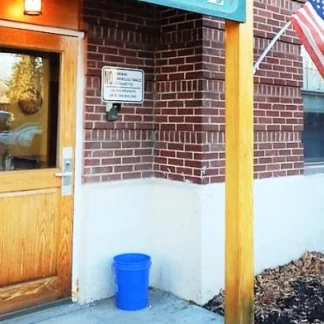Clifton Springs Hospital - Behavioral Health
Clifton Springs Hospital – Behavioral Health is a drug and alcohol rehab and med...
Finger Lakes Area Counseling and Recovery Agency (FLACRA) is a private, non-profit agency serving individuals and their loved ones whose lives are affected by substance use and other health-related disorders. FLACRA offers a unique Continuum of Care for their clients. Services include, but are not limited to, addictions crisis counseling, outpatient services, community residences, supportive living, housing, and care management.
Contact us for more information: (315) 462-9466

Connect with Finger Lakes Area Counseling and Recovery Agency by calling their admissions team directly.
(315) 462-9466 Website Get DirectionsResearch clearly demonstrates that recovery is far more successful and sustainable when loved ones like family members participate in rehab and substance abuse treatment. Genetic factors may be at play when it comes to drug and alcohol addiction, as well as mental health issues. Family dynamics often play a critical role in addiction triggers, and if properly educated, family members can be a strong source of support when it comes to rehabilitation.
Group therapy is any therapeutic work that happens in a group (not one-on-one). There are a number of different group therapy modalities, including support groups, experiential therapy, psycho-education, and more. Group therapy involves treatment as well as processing interaction between group members.
In individual therapy, a patient meets one-on-one with a trained psychologist or counselor. Therapy is a pivotal part of effective substance abuse treatment, as it often covers root causes of addiction, including challenges faced by the patient in their social, family, and work/school life.
Group therapy is any therapeutic work that happens in a group (not one-on-one). There are a number of different group therapy modalities, including support groups, experiential therapy, psycho-education, and more. Group therapy involves treatment as well as processing interaction between group members.
In individual therapy, a patient meets one-on-one with a trained psychologist or counselor. Therapy is a pivotal part of effective substance abuse treatment, as it often covers root causes of addiction, including challenges faced by the patient in their social, family, and work/school life.
In individual therapy, a patient meets one-on-one with a trained psychologist or counselor. Therapy is a pivotal part of effective substance abuse treatment, as it often covers root causes of addiction, including challenges faced by the patient in their social, family, and work/school life.
Clifton Springs Hospital – Behavioral Health is a drug and alcohol rehab and med...
Finger Lakes Area Counseling and Recovery Agency - Union Street is a private, no...
Alta Care Group is a private rehab located in Shortsville, New York. Alta Care G...
Youth Advocate Programs is a counseling clinic located in Newark, NY. Youth Advo...